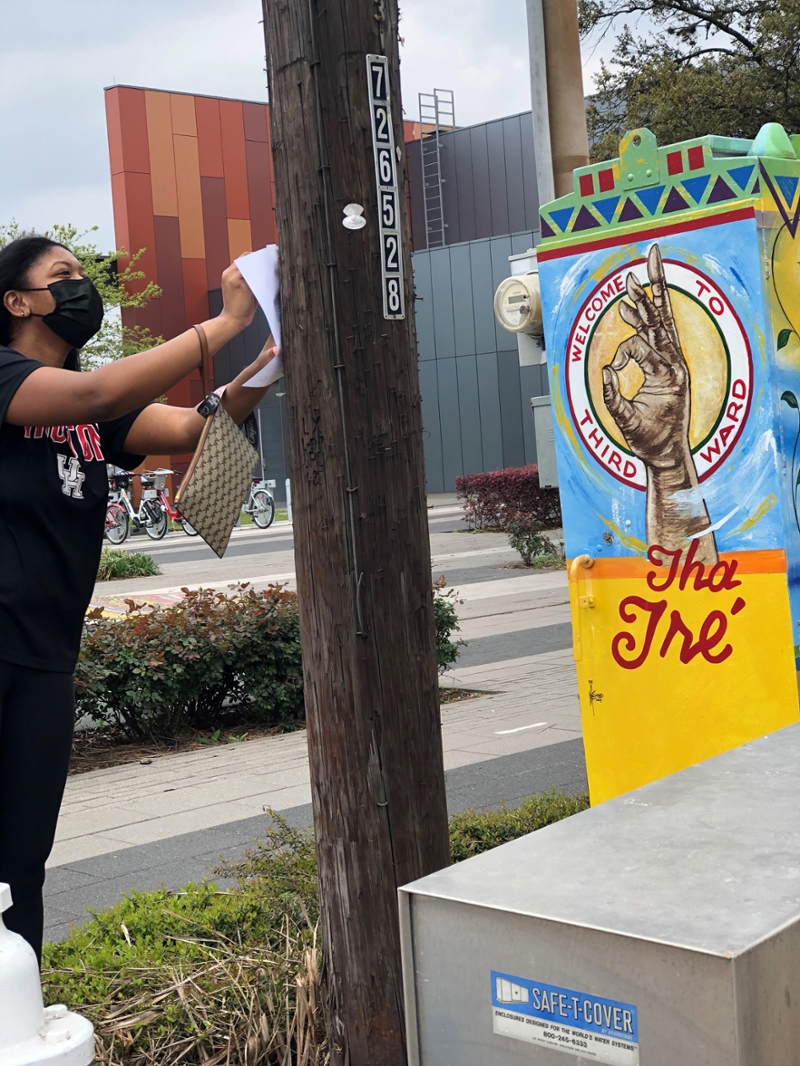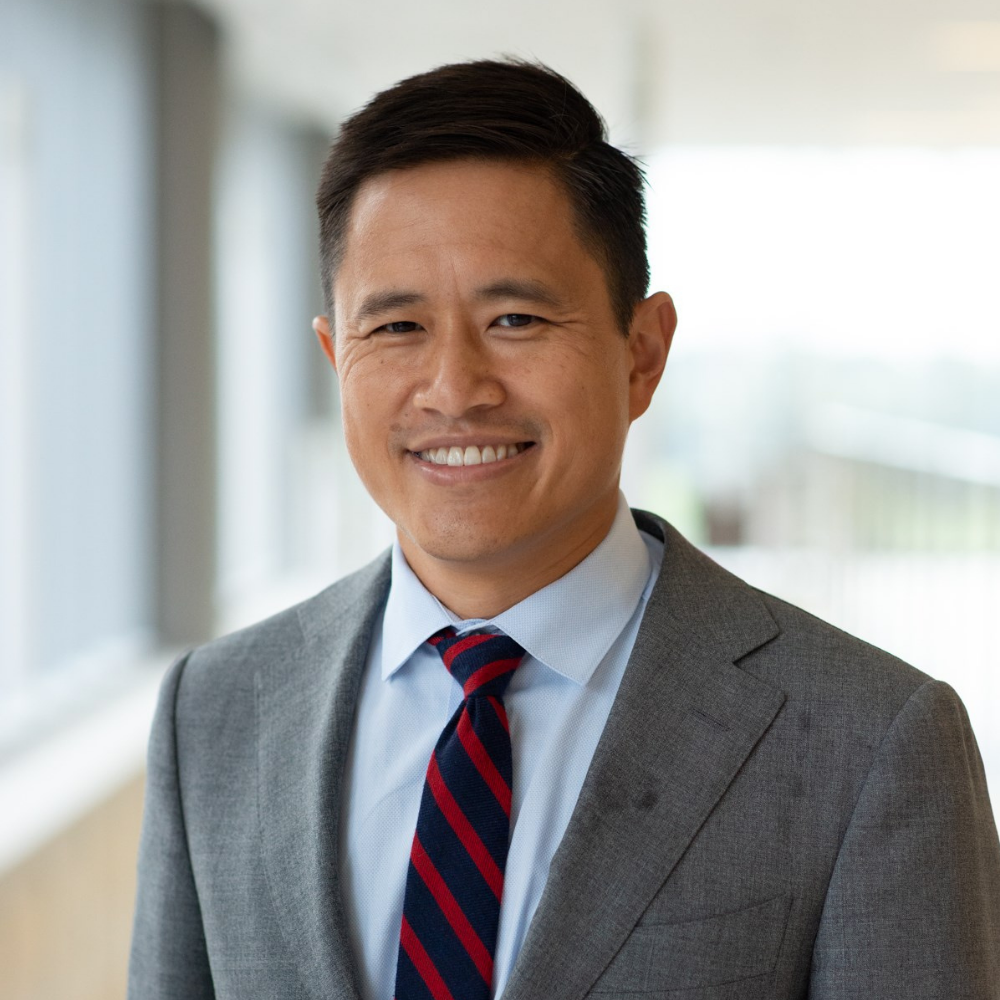Health Systems and Population Health Sciences
The Department of Health Systems and Population Health Sciences exists to equip tomorrow’s doctors with the knowledge, vision, and tools to be agents of change, who make communities healthier and our health system more effective and efficient.
We connect courses and schools of thought so that students understand the biomedical, behavioral, social, and political factors influencing health. Our educational content is designed to stimulate conversation and action outside of the classroom, in pursuit of individual and system improvement.
"Why treat people and send them back to the conditions that made them sick?"
- Michael Marmont, M.D., Author of “The Health Gap”
Our health care system needs new ideas. We encourage everyone to bring their ideas and whole selves to work, class and projects.
Through interdisciplinary scholarship, education, and engagement, our work addresses pressing needs that exist in the Greater Houston area and leads to healthier communities.
Focus Areas
We have a duty to think about what our medical school will contribute to this community. Does our work provide a benefit to Houston and to our neighbors? In my research, I studied social accountability as a theoretical framework, and when I saw the UH College of Medicine mission, I thought, 'This school will make social accountability come alive.'
- Winston Liaw, M.D., M.P.H., Chair, Health Systems & Population Health Sciences
Research & Community Engagement
 Departmental faculty work with community stakeholders and organizations to address
issues relevant to communities in the Greater Houston area.
Departmental faculty work with community stakeholders and organizations to address
issues relevant to communities in the Greater Houston area.
Our work helps patients receive the right care, at the right time, at the right place. We are on a mission to break down ineffective and inefficient cycles of health by creating new paths that are built on a foundation of scientific evidence – research and data – and guided by communities.
We believe that we can do more together than we can separately.
What we study:
- Substance use
- Homelessness
- Loneliness
- Health-harming legal needs
- Clinician burnout
- Value in health care
- Health informatics and artificial intelligence
GhanaTrip
 Tilman J. Fertitta Family College of Medicine in partnership with Humana Institute is planning a study abroad trip to Accra, Ghana. From 7/5/2025 to 7/13/2025, College
of Medicine students will collaborate with University of Ghana Medical School (UGMS)
students and faculty to provide patient care in underserved communities. This experience
will foster cross-cultural medical learning, enhance clinical skills in resource-limited
settings, and strengthen partnerships between Fertitta College of Medicine and UGMS.
Students will work alongside local health care professionals to address community
health needs while gaining valuable insights into global health challenges and solutions.
Tilman J. Fertitta Family College of Medicine in partnership with Humana Institute is planning a study abroad trip to Accra, Ghana. From 7/5/2025 to 7/13/2025, College
of Medicine students will collaborate with University of Ghana Medical School (UGMS)
students and faculty to provide patient care in underserved communities. This experience
will foster cross-cultural medical learning, enhance clinical skills in resource-limited
settings, and strengthen partnerships between Fertitta College of Medicine and UGMS.
Students will work alongside local health care professionals to address community
health needs while gaining valuable insights into global health challenges and solutions.
Honduras Trip
 The Honduras Trip is a faculty-led trip for students to visit and learn about taking care of patients in a rural setting in Honduras. The opportunity will take place from 4/12/2025 until 4/19/2025. During the visit, students will be providing care for patients and living within
the community. This unique experience will give students the opportunity to broaden
their knowledge, gain new perspectives, and develop their skills as future health
care leaders.
The Honduras Trip is a faculty-led trip for students to visit and learn about taking care of patients in a rural setting in Honduras. The opportunity will take place from 4/12/2025 until 4/19/2025. During the visit, students will be providing care for patients and living within
the community. This unique experience will give students the opportunity to broaden
their knowledge, gain new perspectives, and develop their skills as future health
care leaders.
Harris County Homelessness Mortality Report
 In Harris County, mortality among people experiencing homelessness has increased in recent years even
as unsheltered homelessness has been reduced dramatically across the same area, urging
us to understand the causes of death and identify methods to reduce mortality. Since
2018, the homeless population in the county has decreased by 27%, in spite of the
rise in deaths. Using data from the Harris County Institute of Forensic Sciences (HCIFS),
we have compiled this second annual report to identify the demographics and causes
of death for people experiencing homelessness in Harris County.
In Harris County, mortality among people experiencing homelessness has increased in recent years even
as unsheltered homelessness has been reduced dramatically across the same area, urging
us to understand the causes of death and identify methods to reduce mortality. Since
2018, the homeless population in the county has decreased by 27%, in spite of the
rise in deaths. Using data from the Harris County Institute of Forensic Sciences (HCIFS),
we have compiled this second annual report to identify the demographics and causes
of death for people experiencing homelessness in Harris County.
2021-2023 Addendum on Health Care Utilization
2021-2022 Addendum on Service Utilization
Who We Are

Winston Liaw, M.D., M.P.H.Chair, Health Systems & Population Health Sciences |
Vision, Values and MissionsThe Department of Health Systems and Population Health Sciences seeks to break ineffective
and inefficient cycles of health by creating new paths that are built on a foundation
of evidence and guided by communities.
Meet the TeamWe are home to the Pop Stars! We bring together experts in diverse fields, such as
population health, health services research, health economics, community health, biostatistics,
epidemiology, patient safety and more, to educate our students and work with our communities
to improve health and health care in Houston and beyond.
|